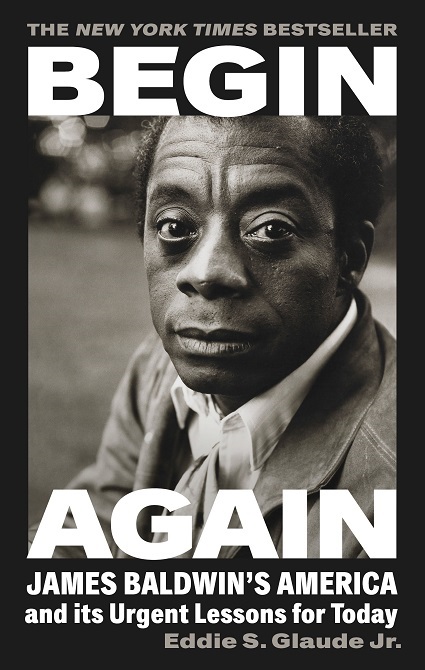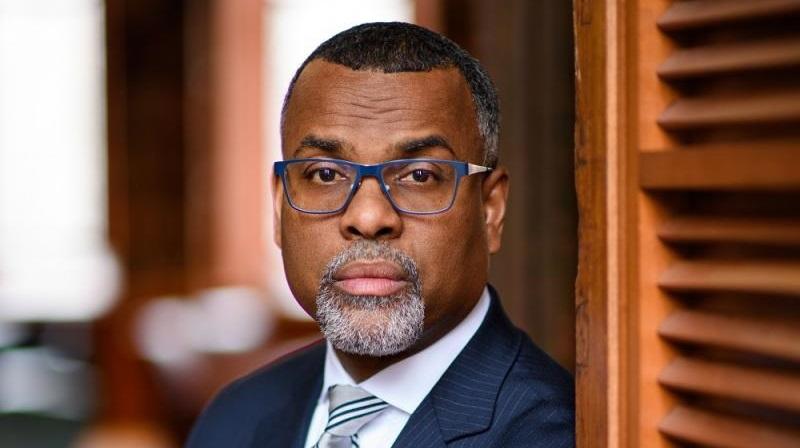I suspect that the work of James Baldwin is not all that familiar to readers in Britain, perhaps not even to black readers in Britain – just as, for a time at least, it seemed that Martin Luther King, a much more visible figure in black history whose words are routinely quoted, became obscured by rather blingier modern-day figures.
Yet, as a number of commentators have noted, Baldwin is the figure we need to turn to in the age of Trump, the man who long ago told us that “It is certain… that ignorance, allied with power, is the most ferocious enemy justice can have." Amen to that. The film I Am Not Your Negro, based on an unfinished manuscript, was released at the opening of the Trump era, while Professor Glaude’s book – a meditation on Baldwin and his work begun at Trump mid-term – appeared in America during the summer of George Floyd and Black Lives Matter, and of the toppling of statues, here as well as there. The era of Trump has shown that we are not “better than this” and that America needs “an honest confrontation with the past” in order that the country and its people be freed from “the shackles of a particular national story in order that we might create ourselves anew”.
 The “great lie” of post-Civil War Reconstruction – when, supposedly, “Negroes… proved that freedom was dangerous in the hands of inferior beings” – needs to be exposed once and for all. Confederate statues have served to justify the very real horrors of slavery as little more than a mistake and to equate Robert E Lee with the founding fathers. White supremacist violence in Charlottesville in 2016 was occasioned by just such a battle over history and Trump, in suggesting there was “good and bad on birth sides”, was engaging in moral relativism. Baldwin, says Glaude, urged us to “look at what we are doing in the name of our history and how that might enable us, if we’re honest, to tell the story of America differently.” It’s a valid proposition for Britain too, as four people are charged with removing slave trader Edward Colston from his plinth and a government minister plans new laws to protect such statues from what he calls “baying mobs”.
The “great lie” of post-Civil War Reconstruction – when, supposedly, “Negroes… proved that freedom was dangerous in the hands of inferior beings” – needs to be exposed once and for all. Confederate statues have served to justify the very real horrors of slavery as little more than a mistake and to equate Robert E Lee with the founding fathers. White supremacist violence in Charlottesville in 2016 was occasioned by just such a battle over history and Trump, in suggesting there was “good and bad on birth sides”, was engaging in moral relativism. Baldwin, says Glaude, urged us to “look at what we are doing in the name of our history and how that might enable us, if we’re honest, to tell the story of America differently.” It’s a valid proposition for Britain too, as four people are charged with removing slave trader Edward Colston from his plinth and a government minister plans new laws to protect such statues from what he calls “baying mobs”.
Essentially Baldwin came to be less concerned about being nice to his white brothers than Dr King, with whom his relationship became increasingly wary, not least because of Baldwin’s support for Stokely Carmichael and his “sympathies for the militancy of the younger generation” – radical groups with whom King, a nonviolent activist, naturally felt uneasy. Baldwin had long recognised that many blacks would turn against King who, by the end of his life, felt beleaguered. Baldwin’s castigating of “the cowardly obtuseness of white liberals” in a celebrated New Yorker essay spurred on the black power movement.
Glaude begins his book amid the ruins of Baldwin’s home in St Paul-de-Vence and ends it at his New York graveside. He started writing outside the United States, in Heidelberg, Germany, during a brief fellowship – a position that gave him an outsider’s view of the country of his birth, much as Baldwin had, as well as refuge from Trump and accompanying critical distance. That he immediately witnessed the police beating of a black man must have been dislocating indeed. In the ruins of Baldwin’s French home, he finds a metaphor for what the writer saw in the United States – “decay and wreckage alongside greed and selfishness”, a nation that, after the promise of Montgomery, had gone on to betray “the black freedom struggle of the mid-twentieth century. The country had refused, once again, to turn its back on racism and reach for its better angels.”
Glaude's book is neither straight biography nor straight history, but rather historiography, reaching back and forth in time to show what Baldwin – whose centenary will be celebrated in 2024 – has to say to us and to teach us through his many writings at a time when “the idea of America is in deep trouble”. On the surface Begin Again might seem to have little relevance for us here – yet the idea of the United Kingdom is in deep trouble also, for reasons that are both different and similar. Fortunately, Britain has fewer guns and no pointy white hats.
Baldwin, Glaude concludes, “exposes your private lies and forces you, because of his relentless commitment to the examined life, to confront your deepest wounds as a precondition for saying anything about the world.”
- Begin Again: James Baldwin's America and Its Urgent Lessons for Today by Eddie S Glaude Jr (Chatto & Windus, £16.99)
- More book reviews on theartsdesk
- Liz Thomson's website















Add comment